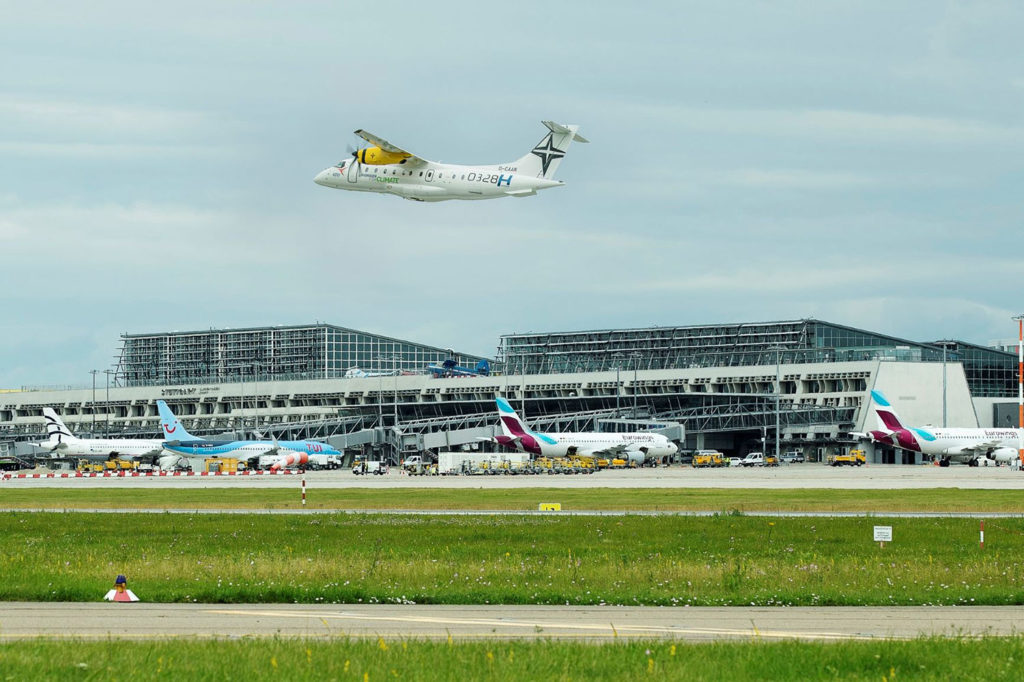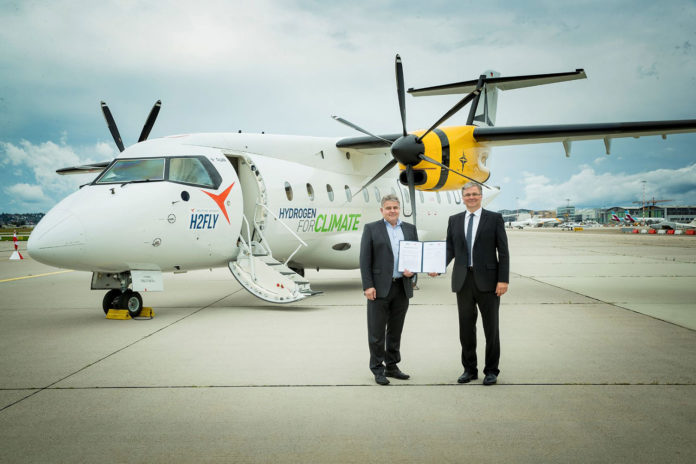Moving into the future of emission-free flying, Deutsche Aircraft and German fuel-cell developer H2FLY signed an MoU to work together on the research and development of Hydrogen Fuel Cell technology for commercial, regional aircraft.
As part of the partnership, the two aviation companies are converting a Dornier 328 aircraft into zero carbon emissions, hydrogen fuel cell aircraft, with the demonstrator aircraft expected to take to the skies in 2025.
Both companies see the joint approach as the next step on the way to realizing climate-neutral regional flights. They are planning to equip the twin-engine D-328 demonstrator aircraft with a 1.5MW hydrogen system, making it the most powerful hydrogen-electric-powered aircraft to date.
The regional aircraft announced by H2Fly will later be able to carry around 40 passengers on routes of up to around 1,850 km (1,150 miles) with a peak power of 3 MW and an output of 1.4 MW when cruising. According to the plans, the cruising speed will then be 520 km/h (323 mph).

The test program initially developed by both companies is intended to demonstrate the potential of hydrogen for climate-neutral regional air travel. It will see the companies work together on integrating the power system into the aircraft as well as defining the specific technical and certification requirements for fuel cell systems in EASA’s large aircraft class (“CS25”). The project is designed to complement the German Federal Government’s Aviation Strategy.
It is planned that the demonstration aircraft will be able to take off on a test flight for the first time in 2025.
H2FLY has already gained the necessary experience with fuel cell technology, whereby more than 70 take-offs and landings have been performed with the four-seater hydrogen-electric-powered HY4. The HY4 runs a battery/fuel-cell hybrid powertrain that peaks at 80 kW and can fly from 750 to 1,500 km (466 to 932 miles) on a 21 kg tank of hydrogen. It holds records for the world’s first hydrogen-electric passenger flight and the longest ever hydrogen fuel cell-powered flight to date. H2Fly is also working on hydrogen powertrains for eVTOLs, 19-seater aircraft, and other projects.
“Flying provides an incredibly important opportunity for humankind, but today that opportunity comes at a significant cost to our planet,” said Prof. Dr. Josef Kallo, co-founder and CEO, H2FLY. “Hydrogen fuel cell technology provides an opportunity for us to completely eliminate carbon and NOx emissions from regional flights, and the technology to make that happen is closer than most people think.“
